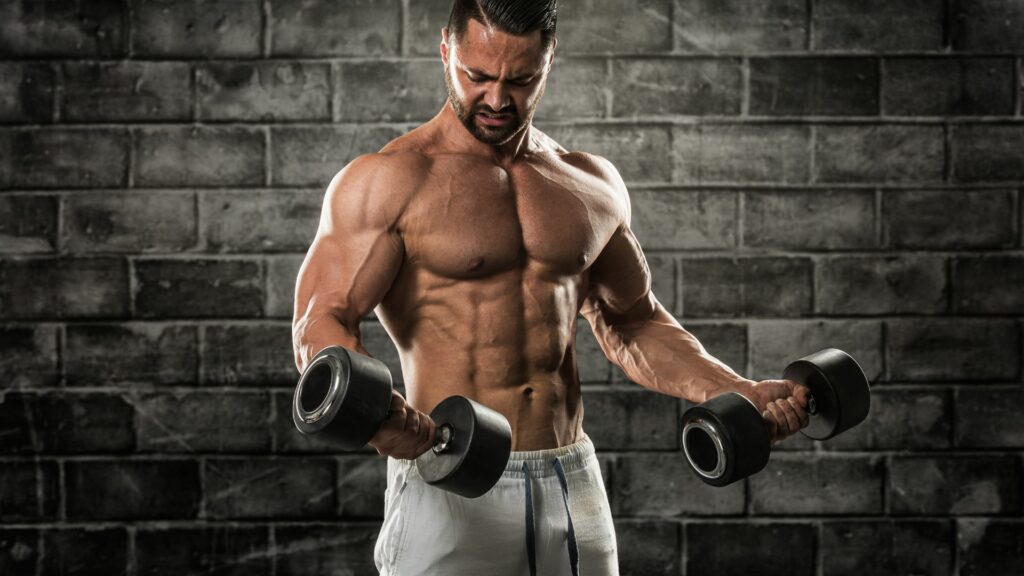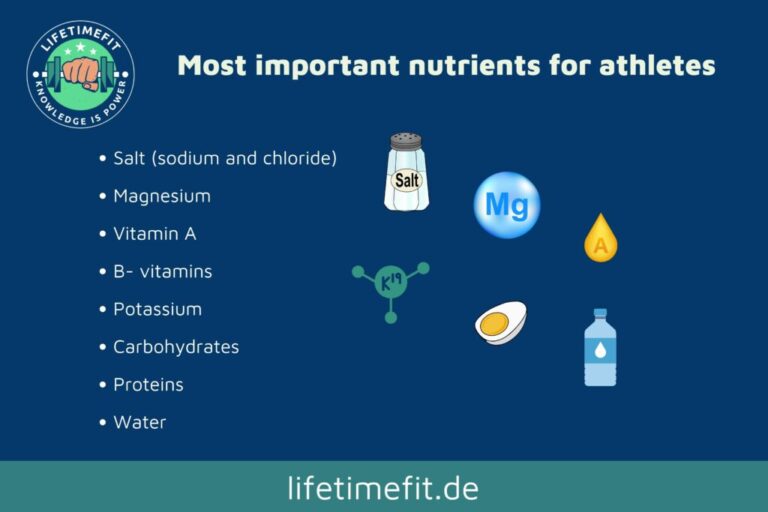A successful workout includes the warm-up, the actual workout, and the cool-down phase. Especially with the nutrition after the workout, you can help your body recover faster. This works best if you take the proper nutrients:
An overview of the most important nutrients
Any sufficiently intense exercise puts your body under stress. If you train according to your individual abilities, this will lead to a continuous increase in performance. In addition to sensible training planning, nutrition also plays a decisive role. With the right foods, you can support your body optimally. These nutrients are essential after a workout:
Why salt is essential for athletes
Sweating is a necessary part of your workout. It helps the body stay cool by regulating body temperature. Only then are you able to continue exercising. Depending on the duration and intensity of your workout, you lose up to 450 mg of salt. And although salt doesn’t have a good reputation, it is essential for maintaining a healthy fluid balance in the body. Salt components – sodium and chloride – are used in crucial processes. Both together support signal transmission in nerve cells. Chloride is also an important electrolyte, essential for healthy blood pressure and blood volume. It also helps maintain the pH of your body fluids. So after your workout, feel free to season your food with a bit of salt.
Magnesium is very important for regeneration
Our body needs magnesium primarily to recover well. But recent findings also show that it helps with regeneration and is vital for the muscle during training. It protects the power from breaking down too much. The best sources are:
- Avocado
- Legumes (lentils, beans, chickpeas, peas, and soybeans)
- Nuts (almonds, cashews, Brazil nuts)
- Tofu
- Pumpkin seeds
- whole grains (buckwheat)
- Oily fish (salmon, mackerel, halibut)
Vitamin A not only for healthy eyes
Vitamin A is primarily considered an eye vitamin, but it is also important for muscles. This is because it helps maintain the trained powerhouses’ structural components. It is also important for the beta cells of the pancreas. Sufficient vitamin A intake helps the organ release insulin in just the right amounts. A healthy pancreas means a better supply of sugar to muscles during and after exercise. The primary sources of vitamin A are liver, fish, and grain products. You can also get provitamin A from carrots, broccoli, cantaloupe melon, and pumpkin – but the body doesn’t absorb this form of vitamin A as easily.
B vitamins for extra energy
B vitamins are important in supplying cells with energy to help them repair and recover. They are, in effect, their fuel source. They also help break down and improve amino acids and proteins. The best sources:
- Brown rice, barley, and millet
- red meat, poultry, and fish
- eggs and dairy products
- Legumes
- sunflower seeds and almonds
- broccoli and kale
- Citrus fruits, avocado, and banana
Potassium for muscle contraction
As mentioned above, sodium and potassium work together. Both support signal transmission in nerve cells. But they also play a unique role in the contraction of muscles. To explain, when muscles contract, sodium and potassium exchange inside and outside the cell. On the one hand, this means that sufficient amounts of potassium should be present in the body before exercise so that this exchange can occur. But on the other hand, potassium must be replenished to bring the body back into homeostasis – regular function. Good sources are:
- Bananas and oranges
- Spinach and broccoli
- Potatoes and sweet potatoes
- Mushrooms
- Peas
- Cucumbers

Carbohydrates too, of course
Regardless of the popular keto and low carb diets, as an athlete you also need carbohydrates. However, it is important to choose the right carbohydrates, because they are processed in different ways. So if you want to quickly fill up on nutrients, simple carbohydrates like those found in fruits and sugary foods are ideal to fuel your body. But in general, slow digesting carbohydrates are better. Here are the reasons:
Slow-digesting carbohydrates tend to have more fiber.
Fiber is more complex in structure and your body takes longer to break it down.
This leads to a slower release of glucose and a slower release of insulin.
Fiber is also good for your gut health. The healthier it is, the better your overall health.
- Slow-digesting carbohydrates tend to have more fiber.
- Fiber is more complex in structure, and your body takes longer to break it down.
- This leads to a slower release of glucose and a slower release of insulin.
- Fiber is also good for your gut health. The healthier it is, the better your overall health.
Proteins for your muscles
Proteins are essential nutrients for every athletically active person because they are the building blocks of muscle tissue. You should provide your body with protein after every strength training session to help rebuild your muscles. It is crucial to choose the right protein source. It should provide the correct ratio of amino acids. Meat is considered a high-quality protein source because it contains all amino acids in the right amount. However, it is also possible with vegetable proteins.
You can’t do without water
When you train regularly and intensively, you inevitably work up a sweat. And that’s a good thing. However, you have to compensate for the loss of water because this not only leads to headaches. Your muscles also recover more slowly. So you should drink two to three liters a day. But not necessarily more. Because you can also overdo it with the fluid intake. Ideally, you should drink as much as you feel thirsty.
